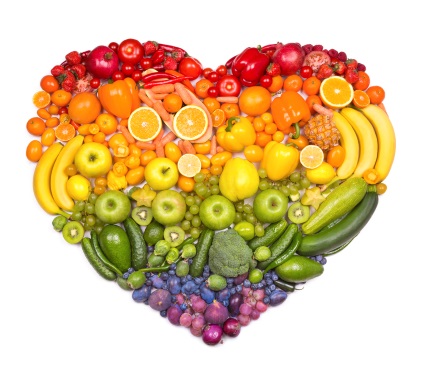March is National Nutrition Month – but it’s always the right time to focus on the role of nutrition in maintaining good health, specifically heart health, which is a major cause of illness among seniors.
Your chances of developing heart conditions such as high blood pressure, atherosclerosis, or congestive heart failure are dependent on many risk factors, including genetics, smoking, activity level, obesity – and diet. Stella Leone, Registered Dietitian and Clinical Nutrition Manager at McLean, offers a glimpse at two “dueling nutrients” to keep in mind when it comes to your diet’s effect on your heart health.
Watch the Salt
Sodium is an essential nutrient. In the right amount, it helps your body maintain fluid balance, helps with nerve impulse transmission, and keeps muscles and nerves running smoothly. Elevated sodium levels contribute to high blood pressure, heart disease, and stroke. Most Americans consume much more sodium than they need: 1.5 teaspoons (3400 mg per day), when the recommended amount is no more than 1 teaspoon (2300 mg per day). And really, it’s best to aim for between 1200-1500 mg per day. Reducing your salt intake can be difficult, but try these tips:
- Don’t salt food till after you’ve tasted it.
- Try cooking and preparing meals/snacks with herbs instead of salt.
- Limit pre-packaged or fast food intake – those foods are typically loaded with salt.
The Importance of Potassium
Potassium (K+) regulates your heart’s normal electrical activity. It’s helpful in maintaining optimum blood pressure and fluid levels in the body. Potassium can counteract the effects of too much sodium. Your body requires more potassium than sodium each day but Americans usually consume more sodium than potassium. Dangerously low potassium levels are rare, and it’s easy to make sure you get enough. Try these sources:
- Citrus fruits such as lemons – try adding some to your water or squeezing over veggies
- Dried fruits such as apricots or dates
- Vegetables such as spinach, carrots, zucchini and pumpkin
- Legumes such as peas or beans
- Reduce your intake of breads, cheeses, processed meats – they’re low in potassium and high in sodium
Reducing your sodium intake while boosting your potassium intake is just one way you can help regulate your heart’s health. To learn more about how your diet fits in with your cardiac health goals, reach out to a registered dietitian or your physician.


